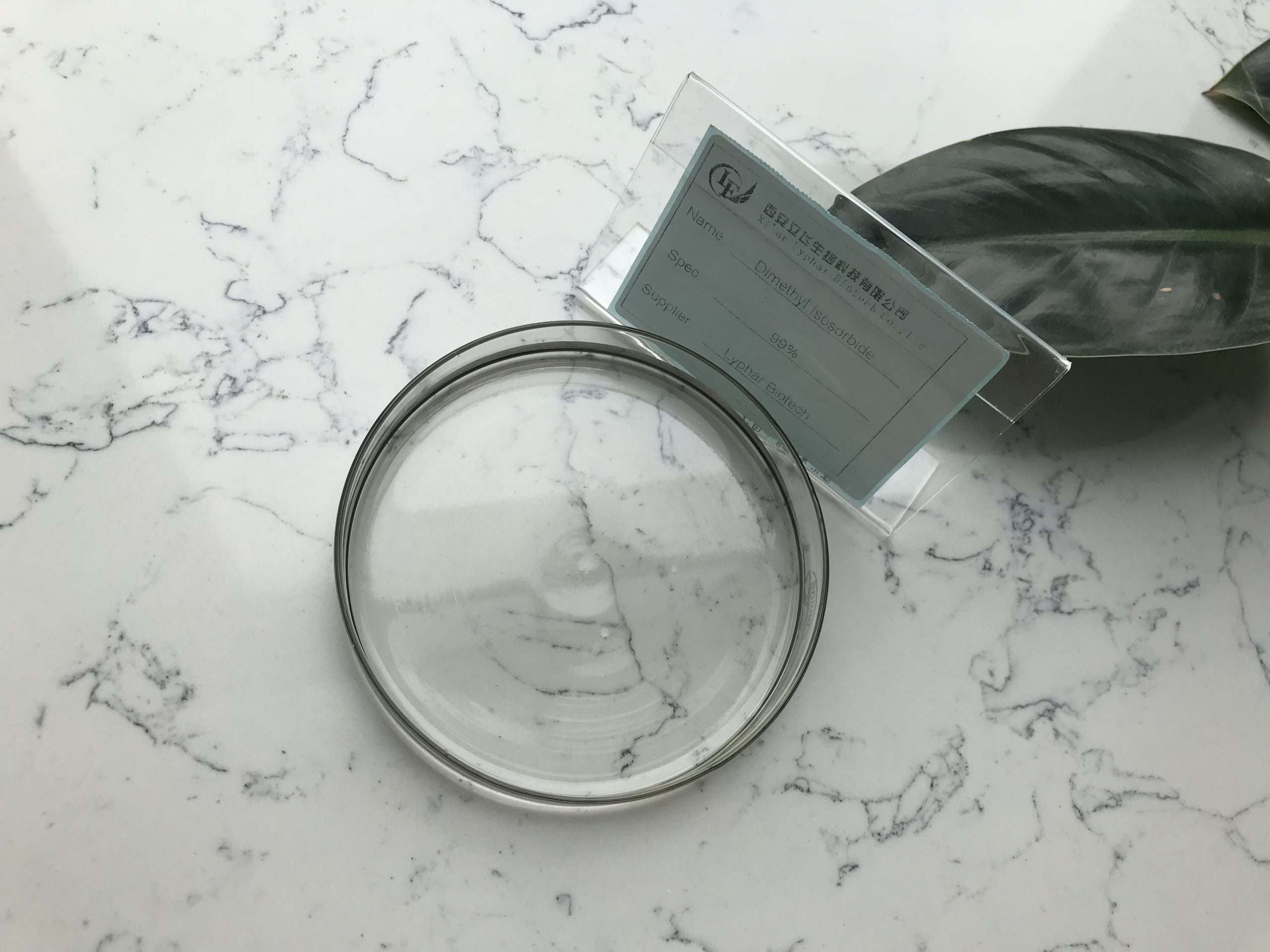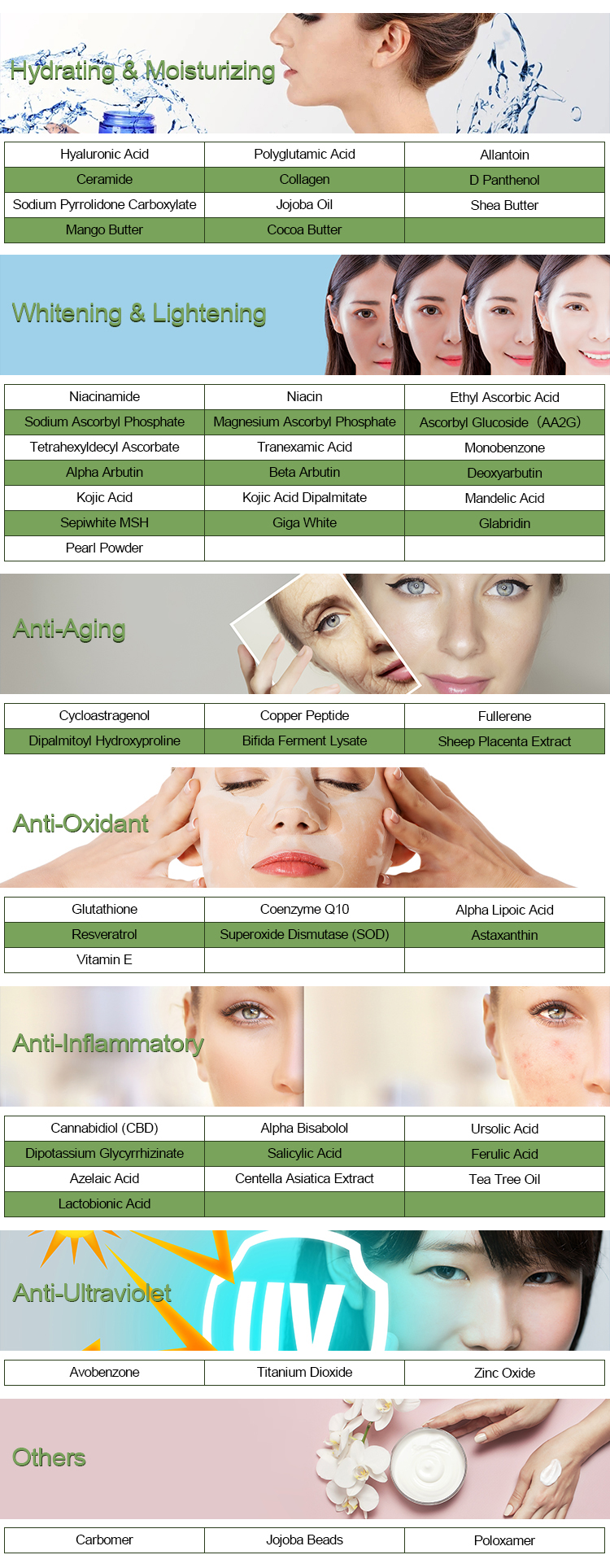Isosorbide Dimethyl Ether (ISDM), also known as dimethyl isosorbide (DMI), is an organic compound derived from isosorbide, a bicyclic sugar alcohol. Isosorbide Dimethyl Ether has been explored for a variety of applications, particularly as a solvent in various chemical formulations, and in the pharmaceutical and cosmetics industries. Below is an evaluation of Isosorbide Dimethyl Ether’s properties, applications, advantages, and limitations:
1. Chemical Structure and Properties:
- Molecular Formula: C8H14O3
- Appearance: Clear, colorless liquid
- Molecular Weight: 174.19 g/mol
- Boiling Point: Approximately 210°C
- Solubility: ISDM is highly soluble in water and organic solvents such as ethanol, acetone, and chloroform.
- Viscosity: Moderate viscosity, making it a useful solvent in certain applications.
Isosorbide Dimethyl Ether is produced by the methylation of isosorbide with methanol and is considered a versatile solvent because of its ability to dissolve a wide range of both hydrophilic and lipophilic substances.

2. Applications of Isosorbide Dimethyl Ether:
- Solvent in Formulations: Due to its excellent solvency properties, Isosorbide Dimethyl Ether is used in chemical formulations for industries like coatings, paints, adhesives, and personal care products.
- Pharmaceutical Industry: Isosorbide Dimethyl Ether is used as a solvent in the formulation of drug delivery systems, particularly in topical preparations, creams, and gels. Its role as a solvent is beneficial for enhancing the skin penetration of certain drugs.
- Cosmetic and Personal Care: In cosmetics, Isosorbide Dimethyl Ether is used as a solvent and carrier for active ingredients, such as in skin care products, perfumes, and deodorants. It is favored for its mildness and low toxicity.
- Biochemical Applications: Isosorbide Dimethyl Ether can be used in the extraction and purification of natural products and for preparing formulations that require both hydrophilic and lipophilic components.
- Agricultural Applications: Some studies suggest potential uses in pesticide formulations, helping to dissolve active ingredients and facilitate better absorption and distribution.
3. Advantages:
- Biodegradable and Eco-Friendly: Isosorbide Dimethyl Ether is derived from renewable resources (isomaltose), making it more environmentally friendly compared to petroleum-based solvents.
- Non-Toxic and Safe: Isosorbide Dimethyl Ether is relatively safe and non-toxic, with low irritancy potential, making it suitable for use in consumer products, including cosmetics and pharmaceuticals.
- Versatile Solvent: It is effective in dissolving a broad range of substances, both hydrophilic and lipophilic, which makes it a versatile ingredient for many formulations.
- Skin Penetration Enhancer: In the pharmaceutical and cosmetic industries, Isosorbide Dimethyl Ether can enhance the delivery of active ingredients through the skin, improving the efficacy of topical treatments.

4. Limitations and Challenges:
- Relatively High Cost: Isosorbide Dimethyl Ether can be more expensive than traditional solvents like ethanol or propylene glycol. This may limit its use in applications where cost is a critical factor.
- Limited Stability Under Certain Conditions: Isosorbide Dimethyl Ether may degrade or lose efficacy when exposed to extreme pH conditions or prolonged heat, which can impact its use in certain formulations.
- Regulatory Hurdles: While Isosorbide Dimethyl Ether is generally considered safe, its use in some applications may be subject to regulatory scrutiny, especially in the food and pharmaceutical sectors, which could slow down its adoption.
5. Environmental Impact:
- Isosorbide Dimethyl Ether is considered to have a low environmental impact because it is biodegradable and derived from renewable feedstocks. Its use reduces reliance on petroleum-based solvents and helps lower the carbon footprint of chemical processes.
6. Market Trends and Outlook:
- The growing demand for sustainable and environmentally friendly alternatives in industries like personal care, pharmaceuticals, and agriculture is likely to boost the adoption of Isosorbide Dimethyl Ether. As more companies look for renewable solvent solutions,Isosorbide Dimethyl Ether’s market potential is expected to grow.
- Increasing emphasis on safety and non-toxicity in consumer goods also positions Isosorbide Dimethyl Ether well, particularly as companies seek to replace more hazardous chemicals with safer alternatives.

7. Conclusion:
Isosorbide Dimethyl Ether is a promising solvent with numerous applications across different industries due to its eco-friendly nature, safety, and solvent versatility. While it may have some limitations, such as cost and stability concerns, its benefits as a renewable and biodegradable solvent make it a valuable alternative in chemical formulations, especially in the pharmaceutical and cosmetics sectors. The continued focus on sustainability and non-toxic ingredients will likely support the growth of Isosorbide Dimethyl Ether’s market in the coming years.
Would you like more specific data or details about any of these aspects?
